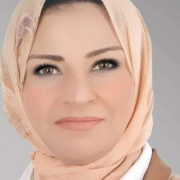Late 2021 conference

#breastfeedinggoals
Online September - December, 2021
#breastfeedinggoals, our 19th online breastfeeding conference in English coverd a wide range of topics to inform and guide your clinical practice and to inspire and challenge your thinking about breastfeeding, nutrition and human lactation.

Why breastfeeding prevents maternal metabolic syndrome and cardiovascular disease
Kathleen Kendall-Tackett, PhD, IBCLC, FAPA - Read moreWhy breastfeeding prevents maternal metabolic syndrome and cardiovascular disease
Kathleen Kendall-Tackett, PhD, IBCLC, FAPA
Dr Kathy Kendall-Tackett is a health psychologist and International Board Certified Lactation Consultant, and the Owner and Editor-in-Chief of Praeclarus Press, a small press specializing in women’s health. Dr Kendall-Tackett is Editor-in-Chief of two peer-reviewed journals: Clinical Lactation and Psychological Trauma. She is Fellow of the American Psychological Association in Health and Trauma Psychology, Past President of the APA Division of Trauma Psychology, and a member of the APA’s Publications and Communications Board. Dr Kendall-Tackett specializes in women’s-health research including breastfeeding, depression, trauma, and health psychology, and has won many awards for her work including the 2017 President’s Award for Outstanding Service to the Field of Trauma Psychology from the American Psychological Association’s Division of Trauma Psychology. Dr Kendall-Tackett has authored more than 460 articles or chapters and is author or editor of 38 books.
Why breastfeeding prevents maternal metabolic syndrome and cardiovascular disease
Several large clinical trials and meta-analyses have demonstrated that breastfeeding lowers women’s lifetime risk of metabolic syndrome, diabetes, and cardiovascular disease. Further, these studies have documented a dose-response effect: the longer that women breastfeed, the lower the risk. The intriguing question is why this occurs. Research from the field of health psychology provides several possible mechanisms that can explain this effect. In this session, you will learn the many ways that breastfeeding positively affects women’s health. Breastfeeding downregulates the stress response, lowers inflammation, decreases depression, improves mother’s sleep quality, decreases daytime fatigue, and even attenuates the effects of psychological trauma.
IBLCE Detailed Content Outline
The IBLCE Detailed Content Outline topics for this presentation were:
1.50 L (II, III, V) CERPs
II – Physiology and Endocrinology
III – Pathology
V – Psychology, Sociology and Anthropology

Compatibility of breastfeeding with taking drugs, alternative products and exposure to contaminants
José María Paricio Talayero, MD, PhD - Read moreCompatibility of breastfeeding with taking drugs, alternative products and exposure to contaminants
José María Paricio Talayero, MD, PhD
Dr Paricio is a Pediatrician. He obtained a doctorate in Medicine with his thesis Breastfeeding and hospitalization for infections in the first year of life from Autonomous University of Madrid (UAM). He also graduated in Design and Statistics in Health Sciences from Autonomous University of Barcelona (UAB). He is the President of APILAM (Association for the Scientific-Cultural Promotion of Breastfeeding) and founder and coordinator of www.e-lactancia.org and www.telasmos.org.
His relationship with breastfeeding dates back to 1984, when he founded and chaired the first Committee for the Humanization of Care at the Hospital de Gandía (Valencia). He has been Head of the Pediatrics Service at Hospital Marina Alta of Alicante for 20 years, which is the third hospital in Spain to obtain the BFHI accreditation of WHO / UNICEF and member for 15 years of the Neonatal Transport team of the province of Alicante. He has been a Member of the Breastfeeding Committee of the Spanish Association of Pediatrics from 2000 to 2013. He has actively collaborated with the Ministry of Health in the Clinical Practice Guide on Attention to Normal Delivery (2010), in the National Strategy for Sexual and Reproductive Health (2011) and in the Guide for Clinical Practice on Breastfeeding (2017). He is also a collaborator of IBFAN and Member of the Health Advisory Council of La Leche League Int. since 2017.
He is the author of the book Tu eres la mejor madre del mundo [You are the best mother in the world] , 53 scientific articles, 301 communications and 16 book chapters. He lecturers in courses, conferences and congresses. He defines himself as passionate about breastfeeding and in safety among the wisdom of women.
Compatibility of breastfeeding with taking drugs, alternative products and exposure to contaminants
Around 90% of women take some medication during breastfeeding and on many occasions, on the advice of their doctors or by themselves, they stop breastfeeding due to the risk that the medication may pass into milk and may affect the infant. This presentation looks at the real risks for the infant and the breast milk when taking medication, alternative products or by the exposure to pollutants by the nursing mother. Which are the scientific and reliable sources of information and how they work.
IBLCE Detailed Content Outline
The IBLCE Detailed Content Outline topic for this presentation was:
1.25 L (IV) CERPs
IV. Pharmacology and Toxicolog

Perinatal mental health and breastfeeding; healthy connections
Maria Enrica Bettinelli, MD, IBCLC - Read morePerinatal mental health and breastfeeding; healthy connections
Maria Enrica Bettinelli, MD, IBCLC
Dr Maria Enrica Bettinelli is Lecturer of Pediatrics, University of Milan, Italy School of Medicine. As IBCLC since 2003, her research focuses on how overcoming barriers to implement breastfeeding support in the community and to promote mother and babies wellbeing in the perinatal period and the first years of life, adopting nurturing care approach. She has authored peer-reviewed publications on baby friendly community, breastfeeding rates in Lombardy, and the maternal and child health effects of lactation.
Her current research includes the clinical management of breastfeeding difficulties and how emotional experiences impact on breastfeeding decision. As Director of Milan Breastfeeding Network in Milan, Dr Bettinelli leads an interdisciplinary team of clinicians, nurses and midwives that is developing new approaches to management of breastfeeding difficulties and to sharing breastfeeding education.
Dr Bettinelli is a member of the Italian Society of Pediatrics and Italian Society of Neonatology and currently chairs the Task Group Education in the ELACTA Board 2020-2022 being member of the ELACTA Board since 2018. Since 2012 is a member of the Academy of Breastfeeding Medicine.
Dr Bettinelli attended University of Milan School of Medicine where she graduated with her MD in 1986. She completed her Residency in Pediatrics in 1989 and in Neonatology in 1991 at University of Milan and went on to complete her medical experience at Mangiagalli Hospital in Milan. Dr Bettinelli obtained her MSc in Perinatal Mental Health in 2019.
She lives in Milan, Italy with her husband and has a daughter, 25 years old.
Perinatal mental health and breastfeeding; healthy connections
Breastfeeding, attachment and perinatal mental disorders share the same neurobiological circuits and neurosciences have shown there are connections acting both in a protective and negative sense.
Relational experiences in the early years of life put the basis for future physical and mental health. Avoiding early toxic stress is essential in preventing mental problems later. Maternal depression, and in general perinatal mental disorders of parental figures, especially of the mother, have a well-documented negative effect on infants and children, altering the mechanism of responsive interaction. Depressed mothers do not engage with their children and fail to respond to their signals. Children find this situation stressful, and there may be permanent effects arising from being raised by chronically depressed parents.
According to recent studies, breastfeeding helps reduce early toxic stress, as well as allowing optimal nutrition. The responsive interaction mode is the basis of the relationship established with breastfeeding. So breastfeeding has a significant impact on the mental health of children and adolescents. The way mothers respond to their children’s needs is the key to understanding these long-term effects. When mothers respond consistently to the signals of their children, they lay the foundations for the resilience of their children. The COVID-19 pandemic significantly increases the risk of perinatal mood disorders among women during perinatal period and support measures for this susceptible population should be particularly to guaranteed. By understanding that the success of breastfeeding is linked to perinatal maternal mental health, we can create awareness when counselling the breastfeeding mother.
IBLCE Detailed Content Outline
The IBLCE Detailed Content Outline topics for this presentation were:
1.00 L (V, VII) CERP
VI. Techniques
VII. Clinical Skills

Calibration: early control of milk productionandPromoting normal feeding in cleft-affected infants
Catherine Watson Genna, BS, IBCLC - Read moreCalibration: early control of milk productionandPromoting normal feeding in cleft-affected infants
Catherine Watson Genna, BS, IBCLC
Catherine Watson Genna has been an IBCLC in private practice in NYC since 1992. She has a special interest in the anatomical, genetic and neurological influences on infant sucking skills, and writes and speaks internationally on these topics. Her current research projects involve investigating the biomechanics of the lactating nipple; analyzing infant sucking via ultrasound and studying suck:swallow rhythms using cervical auscultation. She is the author of Supporting Sucking Skills in Breastfeeding Infants (Jones and Bartlett Learning, 2008, 2013, 2017) and Selecting and Using Breastfeeding Tools (Hale Publishing, 2009; Praeclarus Press, 2016) and served as the founding Associate Editor of the USLCA Journal Clinical Lactation.
Calibration: early control of milk production
Low milk production endangers infant nutrition and the continuation of breastfeeding. Research has revealed that milk production is calibrated by hormonally influenced breast development during puberty and pregnancy, and infant breastfeeding behavior and breastfeeding management immediately after birth. This talk explores how the breast calibrates milk production during early postpartum so we can optimize each mother’s potential to meet her baby’s needs.
IBLCE Detailed Content Outline
The IBLCE Detailed Content Outline topics for this presentation were:
1.00 L (I, III, VI, VII) CERP
I. Development and Nutrition
III. Pathology
VI. Techniques
VII. Clinical Skills
Promoting normal feeding in cleft-affected infants
Infants with cleft lip and palate are often difficult to feed, and may be unable to create negative intraoral pressure to transfer milk at the breast. Human milk, bonding, facilitation of normal tongue movements and enhanced facial development are needs of these infants that may be met by a combination of modified feeding at the breast and alternate feeding of expressed milk.
IBLCE Detailed Content Outline
The IBLCE Detailed Content Outline topics for this presentation were:
2.00 L (I, III, VII) CERPs
I. Development and Nutrition
III. Pathology
VII. Clinical Skills

The feasibility of skimmed human milk feeding in congenital chylothorax
Ana Concheiro, MD, PhD - Read moreThe feasibility of skimmed human milk feeding in congenital chylothorax
Ana Concheiro, MD, PhD
Ana Concheiro is a doctor in medicine, head of neonatology at the Álvaro Cunqueiro University Hospital in Vigo, Spain and the coordinator of the human milk bank in Vigo. She is an associate professor at the University of Santiago de Compostela Health Center and a master’s university professor. She is also the director of doctoral theses and end-of-degree projects for masters. She has more than 300 teaching hours in specialized training courses in pediatrics and neonatology. Dr Concheiro has participated and is currently participating in various public funding research projects and has published more than 50 articles in high-impact journals.
The feasibility of skimmed human milk feeding in congenital chylothorax
Congenital chylothorax is a rare but potentially life-threatening disease in the newborn. Its traditional therapeutic management is based on the elimination of long chain fatty acids (LCFAs) from the diet and therefore, for decades, breastfeeding has been contraindicated. Despite this, breast milk is highly beneficial for these patients due to its nutritional qualities and immunological properties, since chylous effusion implies the loss of immunoglobulins and lymphocytes, among other elements of immunity.
IBLCE Detailed Content Outline
The IBLCE Detailed Content Outline topic for this presentation was:
0.75 L (III) CERPs
III. Pathology

"Parents are using a lot of things": ethics in the age of lactation-related products
Christine Staricka, BS, IBCLC, RLC, CCE - Read more"Parents are using a lot of things": ethics in the age of lactation-related products
Christine Staricka, BS, IBCLC, RLC, CCE
Christine Staricka is a Registered, International Board-Certified Lactation Consultant and Certified Childbirth Educator. Christine worked as a hospital-based IBCLC for 10 years and has over 19 years’ experience providing breastfeeding support and clinical lactation care. She is the Facilitator/Director of Baby Cafe© Bakersfield and provides clinical care in that setting. She teaches professional lactation education courses to aspiring and current lactation care providers, including through an educational membership group called The Lactation Training Lab. Christine developed The First 100 Hours© concept, a lactation assessment strategy designed to help lactation care providers organize their assessments and consultations in the simplest way.
Christine is currently serving as the President of the United States Lactation Consultant Association (USLCA). She holds a Bachelor’s Degree in Business Management from the University of Phoenix. She has been married for 26 years, lives in California, USA, and is the proud mother of 3 amazing daughters.
“Parents are using a lot of things”: ethics in the age of lactation-related products
“When parents and lactation care providers are bombarded with marketing messages about breastfeeding devices and appliances, it becomes more challenging to create a lactation care plan that has the best chance to support the parent to meet their own infant feeding goals. Navigating the messaging around these products while promoting breastfeeding as a public health strategy requires a deeper consideration of how we are creating a fair and just environment of lactation support for all parents, especially when there are many who lack the resources to obtain products or devices. This presentation offers a 3-step process for the lactation care provider to ensure they are offering parents informed consent around any product options being presented as part of a care plan.
IBLCE Detailed Content Outline
The IBLCE Detailed Content Outline topic for this presentation was:
1.25 E (VII) CERPs
VII. Clinical Skills

Helping breastfeeding mothers in Ramadan
Latonia Anthony, RN, IBCLC - Read moreHelping breastfeeding mothers in Ramadan
Latonia Anthony, RN, IBCLC
Latonia Anthony is a wife, mother of 5, and lactation consultant in Dallas, TX. She wrote the book Breastfeeding in Ramadan and will soon publish a book call The Muslim Mothers Companion to Breastfeeding. She is passionate about helping culturally diverse families breastfeed as well as discussing the spiritual/religious importance of breastfeeding. Latonia loves to cook, travel and watch crime thrillers.
Helping breastfeeding mothers in Ramadan
Ramadan is a holy month for Muslims in which the Quran was first revealed to the Prophet Muhammed (pbuh). During these 30 days, all able-bodied Muslims are obligated to fast from sun-up to sundown. Though pregnant and breastfeeding mothers are exempt from fasting, many women participate in intermittent fasting which impacts feeding patterns, routine, mother’s diet and milk supply. In this presentation we will discuss how to counsel Muslim mothers, manage breastfeeding while fasting and how to advise mothers who should not fast.
IBLCE Detailed Content Outline
The IBLCE Detailed Content Outline topics for this presentation were:
1.00 L (V, VII) CERP
V. Psychology, Sociology and Anthropology
VII. Clinical Skills

Mobile health approaches to breastfeeding
Adam Lewkowitz, MD, MPHS - Read moreMobile health approaches to breastfeeding
Adam Lewkowitz, MD, MPHS
Dr Adam Lewkowitzis an Assistant Professor in the Division of Maternal-Fetal Medicine at Women & Infants Hospital of Rhode Island / Alpert Medical School of Brown University, USA. His research and clinical interests focus on leveraging technology to improve health outcomes and equity for women during and after pregnancy. Specifically, he has analyzed the effect of a novel app on low-income women’s breastfeeding rates, is currently examining whether video-based education improves understanding of genetic privacy related to prenatal aneuploidy screening, and is developing a novel just-in-time adaptive intervention to prevent postpartum depression among high-risk women.
Mobile health approaches to breastfeeding
The ongoing COVID pandemic has caused healthcare delivery to rapidly increase capacity for telemedicine and mobile health alternatives to in-person care. This pivot may have a negative effect on fields such as lactation, which historically relied on interpersonal interactions and hands-on support to provide care and education. In this lecture, we will first define mobile health and then discuss various types of mobile health interventions that have been implemented before and after COVID. We will then segway into reviewing the potential benefits that the two most common mobile health breastfeeding interventions–smartphone applications and web pages–may have on infant nutrition outcomes.
IBLCE Detailed Content Outline
The IBLCE Detailed Content Outline topic for this presentation was:
1.00 L (VII) CERP
VII. Clinical Skills

Facilitating lactation in carceral settings
Chauntel Norris, CLC, LCCE - Read moreFacilitating lactation in carceral settings
Chauntel Norris, CLC, LCCE
Chauntel Norris is a dynamic DONA trained birth doula, Lamaze Certified Childbirth Educator and Certified Lactation Counselor.
She serves as Manager of Advocacy, Forward Vision & Change for the Alabama Prison Birth Project where she provides compassionate and dignified care to pregnant and postpartum incarcerated women. Her goal is to help them overcome obstacles so that they are able to maintain maternal bonds, protect their mental health, and decrease the harm of being separated from their babies and communities. Chauntel believes that bonded mothers and babies lead to healthier families, which in turn lead to healthier communities.
Chauntel is a 2021 Aspen Healthy Communities Fellow, the Co-Founder of Baobab Birth Collective where she does birthwork in the community, a Kindred Partner of the Black Mamas Matter Alliance, a Reaching Our Sisters Everywhere (ROSE) Community Transformer and serves on the board of the Alabama Breastfeeding Committee.
Facilitating lactation in carceral settings
In this presentation we will look at how the Alabama Prison Birth Project works to advocate for pregnant incarcerated women. We will take a look at how APBP is currently working to create change in carceral settings and advocate for their clients through childbirth education, doulas and lactation professionals. We will see what their programming entails and discover ways to effect change in each of our own communities.
IBLCE Detailed Content Outline
The IBLCE Detailed Content Outline topic for this presentation was:
0.75 L (VII) CERPs
VII. Clinical Skills

Improving breastfeeding outcomes
Jo Gilpin, RN, RM, CaFHN, IBCLC - Read moreImproving breastfeeding outcomes
Jo Gilpin, RN, RM, CaFHN, IBCLC
Jo Gilpin is a registered nurse, midwife and has worked for many years as a Child health Nurse with the Child and Family Health Service in South Australia. (CaFHS). During this time she completed a Graduate Diploma in Health Counselling and studied Infant Mental Health at the University of South Australia.
She became an IBCLC in 1996. Her passion throughout has been educating, encouraging and supporting parents to have successful, enjoyable breastfeeding relationships with their babies. This has been the main focus of her work.
Jo has worked privately as a Lactation Consultant since 2005. He has published two books, both on breastfeeding – her most recent being “Brilliant Breastfeeding: A Sensible Guide”, published in 2018. This book aims to sensitively guide parents and future parents towards fulfilling feeding relationships with up-to-date, evidence-based information. Attention is paid to the many common challenges that parents face.
Jo loves what she does and never considers it ‘work’. She lives with her husband on Kangaroo Island South Australia, continuing her private IBCLC practice. Her children and five grandchildren live in Sydney and Brisbane, Australia.
Improving breastfeeding outcomes
This presentation provides a summary of practical strategies to optimise confidence in natural birth where possible, knowledge of breastfeeding and the great value of its timely initiation. Never to be underestimated are the advantages for mothers and babies when a breastfeeding relationship flourishes.
IBLCE Detailed Content Outline
The IBLCE Detailed Content Outline topics for this presentation were:
0.50 L (V, VI, VII) CERPs
V. Psychology, Sociology and Anthropology
VI. Techniques
VII. Clinical Skills

Skin-to-skin contact in healthy mothers and their full-term infants
Kelly Cooijmans, MSc - Read moreSkin-to-skin contact in healthy mothers and their full-term infants
Kelly Cooijmans, MSc
Kelly Cooijmans is a PhD student at Developmental Psychology at the Radboud University, The Netherlands, and at the Developmental Psychobiology Lab of the RadboudUMC, The Netherlands. She investigated the effects of a daily skin-to-skin intervention in healthy mothers and their healthy full-term infants on infant health and behavior, mother-child bonding, and maternal mental and physical health (for more information at DPB LAB).
Skin-to-skin contact in healthy mothers and their full-term infants
Extensive research has shown that skin-to-skin contact improves the development of the preterm infant as well as mental and physical wellbeing of the mother. Less is known whether the beneficial effects extend to healthy mothers and their healthy full-term infants. In this presentation the results of a daily skin-to-skin contact intervention during the first five postnatal weeks in mothers and their full-term infants, using a randomized controlled design, will be presented. Does daily skin-to-skin contact improve maternal mental health and physical healing, extend the duration of breastfeeding, and decrease crying and improve sleeping behavior of the infant?
IBLCE Detailed Content Outline
The IBLCE Detailed Content Outline topics for this presentation were:
1.00 L (I, V, VI, VII) CERP
I. Development and Nutrition
V. Psychology, Sociology and Anthropology
VI. Techniques
VII. Clinical Skills

Gentle manual therapeutic techniques in lactation: movement, flow and kindness
Maya Bolman, RN, BA, BSN, IBCLC - Read moreGentle manual therapeutic techniques in lactation: movement, flow and kindness
Maya Bolman, RN, BA, BSN, IBCLC
Maya Bolman was born and raised in Minsk, Belarus. She was certified as IBCLC in 2001 and currently works as a lactation consultant at Senders Pediatrics and Breastfeeding Medicine of Northeast Ohio, USA.
Maya is well known internationally for her work promoting hand expression and breast massage to health professionals and parents. She recognizes that teaching these basic tools helps empower them to work through breastfeeding challenges including engorgement, plugged ducts, separation from the infant, and milk supply concerns.
She has worked with Dr Ann Witt to create an instructional video The Basics of Breast Massage and Hand Expression and conducts research on the effectiveness of Therapeutic Breast Massage in Lactation (TBML) both in the office and as a treatment at home for mothers.
Gentle manual therapeutic techniques in lactation: movement, flow and kindness
This presentation will introduce clinical skills that are essential for every lactation professional. Teaching these manual techniques to parents will support and empower them to deal with pain and discomfort of engorgement, plugged ducts and mastitis. These techniques will be useful in managing oversupply or working on increasing milk production. They can be helpful in dealing with breast discomfort in case of emergency weaning.
The techniques described provide a simple, readily accessible method that can be easily taught to parents and health professionals.
IBLCE Detailed Content Outline
The IBLCE Detailed Content Outline topics for this presentation were:
1.50 L (I, III, VI, VII) CERPs
I. Development and Nutrition
III. Pathology
VI. Techniques
VII. Clinical Skills

Validating a questionnaire regarding knowledge, attitude and practice (KAP) of lactation consultants towards breastfeeding mothers with Covid-19
Shereen Abdelghani Soliman - Read moreValidating a questionnaire regarding knowledge, attitude and practice (KAP) of lactation consultants towards breastfeeding mothers with Covid-19
Shereen Abdelghani Soliman
Dr Shereen Abdelghani Soliman is an IBCLC Pediatrician and neonatologist with 18 years’ experience. She has served on several ILCA committees and taskforces for equity, research and education and also as a subject matter expert on the IBCLC® Practice Analysis Task Force. She is the author of the book The Ultimate Breastfeeding Study Guide in Arabic, which is a reference book for healthcare professionals interested in Breastfeeding medicine. She runs a lactation specific educational certificate 90-hour course and a 5-hour lactation specific communication skills course for healthcare professionals.
Validating a questionnaire regarding knowledge, attitude and practice (KAP) of lactation consultants towards breastfeeding mothers with Covid-19
COVID-19 cases have been a real global strike since late 2019 and even now in 2021, cases are still increasing all over the world. The knowledge, attitude and practice (KAP) of Lactation consultants regarding breastfeeding mothers with Covid-19 need assessment. The aim of this study was to develop a questionnaire and validate it for subsequent use to improve services provided by healthcare professionals concerned with lactation during the pandemic. This questionnaire can be used for tracking KAP of LCs during the pandemic.
IBLCE Detailed Content Outline
The IBLCE Detailed Content Outline topic for this presentation was:
0.75 L (VII) CERPs
VII. Clinical Skills

LatchAid: an interactive mobile phone app providing 24/7 support for families’ breastfeeding goals, combining innovative technologies and IBCLCs
Shel Banks, IBCLC - Read moreLatchAid: an interactive mobile phone app providing 24/7 support for families’ breastfeeding goals, combining innovative technologies and IBCLCs
Shel Banks, IBCLC
IBCLC Infant Feeding Specialist Shel is a consultant at newly released app LatchAid, working to support improved infant feeding outcomes for families everywhere. In addition to her work for LatchAid she works part-time in the NHS in Lancashire, England, and has a small private practice supporting families locally and across the world via videocall.
As well as working a few hours each week for LatchAid, Shel provides teaching, writing and other expertise to a number of national charities and organisations, and has written and contributed to chapters in several books about infant feeding, as well as writing Why Infant Formula Matters, due for publication by Pinter & Martin in Autumn 2021.
Shel has been involved in 3 Cochrane systematic reviews on various aspects of infantile colic (dietary modifications, probiotics for prevention and parental education), and the development of 3 NICE guidelines in the infant feeding arena (Donor Milk Banking, Postnatal Care and Faltering Growth). In addition to other teaching roles, Shel has recently supported a research project testing out a new method of delivering a perinatal infant feeding support across the UK as a tutor.
LatchAid: an interactive mobile phone app providing 24/7 support for families’ breastfeeding goals, combining innovative technologies and IBCLCs
LatchAid is a pioneering new phone / tablet App offering innovative solutions for access to timely and trustworthy breastfeeding support information and expertise.
The app uses cutting-edge interactive CGI 3-D technology to give a truly anatomical view of babies attaching at the breast in optimal positions and a variety of poses, with 360° camera control and customisable avatars, alongside moderated chat channels, a revolutionary artificial intelligence powered virtual breastfeeding supporter providing tailored 24/7 responses to queries, access to IBCLCs and other experts in the field, and live expert weekly webinars and virtual drop-ins.
This presentation aims to address the need for remote support and innovative approaches to supporting families with the lactation, in today’s world and tomorrow’s.
IBLCE Detailed Content Outline
The IBLCE Detailed Content Outline topic for this presentation was:
1.25 L (VII) CERPs
VII. Clinical Skills

Breastfeeding in times of COVID-19
Britt van Keulen, MD, PhD - Read moreBreastfeeding in times of COVID-19
Britt van Keulen, MD, PhD
Dr Britt van Keulen knew from an early age that she wanted to work with children in the future. She graduated as a doctor in 2017, after which she started as a researcher in pediatrics. Her PhD trajectory was about the development of the stress hormone in children. At that time she was also involved as a doctor at the Dutch Mother’s Milk Bank. At the beginning of 2020, during the outbreak of the coronavirus in the Netherlands, she received an email from the Dutch Mother’s Milk Bank asking whether breast milk contains antibodies against the coronavirus. Together with Hans van Goudoever, she quickly set up various studies to find out, namely the COVID MILK studies. In the first study, the research team has shown that antibodies are indeed present in breast milk after women have gone through the coronavirus. In addition, they looked at the effect of pasteurization on these antibodies, the role of the antibodies against the virus, how long the antibodies remained and how many women in the Netherlands have antibodies in their milk. They are currently researching stress during the coronavirus crisis in mothers who have recently given birth and its effect on breast milk. All studies together show the enormous potential of breast milk.
Breastfeeding in times of COVID-19
Breastfed children have fewer respiratory infections than bottle-fed children. Breast milk contains all kinds of substances that can contribute to this, including antibodies. In this lecture, Britt van Keulen will discuss the importance of breast milk in the time of COVIC-19.
IBLCE Detailed Content Outline
The IBLCE Detailed Content Outline topics for this presentation were:
0.75 L (I, VII) CERPs
I. Development and Nutrition
VII. Clinical Skills

Bridging the gap to provide a continuum of careandEffective counseling skills for the lactation professional
Christy Jo Hendricks, IBCLC, RLC, CLE, CCCE - Read moreBridging the gap to provide a continuum of careandEffective counseling skills for the lactation professional
Christy Jo Hendricks, IBCLC, RLC, CLE, CCCE
Christy Jo Hendricks is an international speaker, teacher, inventor and author. She has made a career of instructing in ways that simplify learning and keep audiences engaged. Students enjoy her informative and entertaining teaching style.
Her career has allowed her the privilege of serving families in hospital settings, through public health programs, at her local WIC clinic, during weekly community support groups and in private practice. She has been awarded the Presidential Volunteer Award, Who’s Who among Teachers, Phyllis Klaus Award for Positive Impact on Parent/Infant Bond, Above and Beyond Award for Innovative Practice by the Department of Public Health and Lactation Faculty of the Year from CAPPA. She has also been recognized for her publications.
Christy Jo created and taught an IBCLC prep course that earned state-wide recognition. Her IBCLC prep course has been successful in preparing hundreds of students to become Lactation Consultants.
She resides with her family in California, USA where she continues to serve her community as an IBCLC, CLE, CCCE and birth doula. Christy Jo also works part time for the Department of Public Health and serves as faculty for the CAPPA CLE© and Childbirth Educator Programs.
Bridging the gap to provide a continuum of care
This talk uses humor and scenarios to point out the necessity that those entrusted with a family’s care be professional, inclusive and open in order to provide the best support possible.
We explore connections we should make as lactation professionals and emphasize the importance of referring to the client’s care team. When lactation consultants create strong relationships with other professionals in the community, they are able to make appropriate referrals avoid burn-out.
IBLCE Detailed Content Outline
The IBLCE Detailed Content Outline topic for this presentation was:
1.00 R (VII) CERP
VII. Clinical Skills
Effective counseling skills for the lactation professional
This topic explores the many ways to communicate successfully with prenatal and postpartum individuals. The talk highlights open-ended questions, affirmations, education and the anticipated results of three-step counseling. The presentation also explains how to recognize “change talk” and what words may signal an “open door” to further opportunities for sharing. Circle Charts and Participant Centered Education are discussed in detail. This talks prepares the counselor to share information in an open-minded, non-judgmental way that results in profitable teaching and learning for the counselor and perinatal person. These skills are presented in a fun, unique way and provide more tools for the lactation educator’s tool box.
IBLCE Detailed Content Outline
The IBLCE Detailed Content Outline topics for this presentation were:
1.00 R (V, VII) CERPs
V. Psychology, Sociology and Anthropology
VII. Clinical Skills

The faces of breastfeeding support: social media and peer support
Nicole Bridges, PhD, BComm (Hons), Cert IV Breastfeeding (Counselling and Education) - Read moreThe faces of breastfeeding support: social media and peer support
Nicole Bridges, PhD, BComm (Hons), Cert IV Breastfeeding (Counselling and Education)
Dr Nicole Bridges is a lecturer in public relations at Western Sydney University, researching in online social networking and breastfeeding support. Nicole holds a Certificate IV in Training and Education, has been a volunteer breastfeeding counsellor, community educator and trainer for the Australian Breastfeeding Association since 2000, and is the ACT/NSW Branch President.
The faces of breastfeeding support: social media and peer support
This presentation will explore the characteristics and contents of social media posts, illustrating how Facebook can be used to provide breastfeeding support in addition to learning and coping strategies in these online communities. In terms of breastfeeding support, social media is a relatively new method of providing that support. It is hoped that by focusing on the emergence of new technologies and adopting social media as a mainstream method of breastfeeding support, we can assist the current generation of breastfeeding families in response to new technologies and online worlds.
IBLCE Detailed Content Outline
The IBLCE Detailed Content Outline topics for this presentation were:
1.00 L (V, VII) CERP
V. Psychology, Sociology and Anthropology
VII. Clinical Skills


